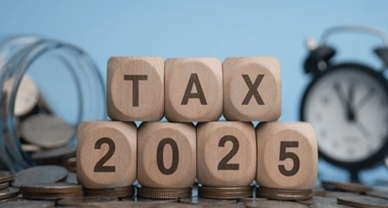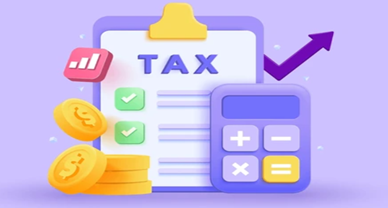Wealth Taxation : Global Needs for Climate Mitigation & Indian Possibilities
Introduction
Global Warming, through carbon emissions and usage of fossil fuels, remains on an all time high. The ecological impact of carbon emissions and a steadily rising carbon footprint remain a concern, especially with calls from the international arena to keep warming well bellow the 2 degree celsius mark. Within this arrangement, it is important to note the contributions of the Ultra High Net Worth (UHNW) individuals towards the climate crisis, with a largely disproportionate impact of the richest 5% alone contributing around 37% or 1/3rd of absolute emissions.[1] The contribution of the top 10% of the richest individuals within the amount of emissions in the time period of 1990 – 2015 showed a significant growth, at a rate almost double of the increase in contributions of the middle income group, which consists of 40% of the set analysed.[2] This means that 10% of the highest income individuals around the globe contribute more to climate change than almost 50% of the rest, not to mention the almost insignificant contributions of the lower income individuals.
An aspect to be considered herein is the relation between climate change and economic inequality, two of the most pressing challenges presented to the international community in modern times, which have an established inter-linkage.[3] It must also be considered that the existence of such economic inequalities also construes various challenges when implementing climate change mitigation measures within the national sphere, with lack of data about the distribution of contributions posing significant issues towards the formation of mitigating policy, as climate – based taxation to discourage carbon – based activities is difficult to implement. An example of the same can be seen within implementation of taxes which aim to mitigate negative externalities in the form of harm to society, such as Pigouvian taxes, which illustrate the primary issues – they are hard to quantify, and are susceptible to lobbying by those in power, which makes them less effective in the real world than in theory.[4]
The rise in income inequality demonstrates the lack of foresight in governmental measures which are being used to address both the income disparities, with a rise in both poverty and accumulation of wealth, and the aspects of climate change mitigation. This demonstrates the shortcomings of what is termed as “trickle down economics”, an approach which calls for concessionary measures in taxation for the UHNW individuals, which would lead to a simultaneous increase for employees that work within these corporations, leading to overall progression.[5] However, the vision of this economic approach does not culminate in reality, with surges in billionaire wealth and rates of global poverty simultaneously rising, pointing to gains of these corporations through exploitative measures and methodologies such as profiteering.
Within this picture, it is important to consider alternative measures, and crackdown on the taxation approaches adopted with respect to the ultra – rich. The New Global Financing Pact, held in Paris, in June 2023, outlined a proposal forwarded by 150 NGOs advocating for the introduction of a new taxation regime for UHNW individuals, which would argumentatively be able to generate enough revenue in order to close the climate financing gap.[6] The introduction of a wealth tax, an annual taxation measure intended to tax the assets of the super – wealthy, could be a viable measure to mitigate the global climate crisis.
The wealth taxation regime as a viable approach was also introduced within the fold of the G20, with Brazil and France leading the inputs on the same.[7] The proposed introduction must have global level implementation, an aspect which would be bringing an end to the series of broken promises of accountability offered by the G20 states, which should finally generate enough revenue in order to provide for the financing of those suffering the impact of climate change.[8]
This would be a stark difference from the typical liberal policies adopted by countries within the EU and the USA, which adopt taxation rates which are disparate to an extent of middle income groups having higher rates of taxation than the high income group, with the average effective tax rates for some of the richest individuals in the USA being around 1%.[9]

The implementation of wealth tax must be constructed upon the consideration of total assets, as opposed to income groups, divided into progressive & multiple brackets[10], with multiple implementation proposals having been forwarded, including a proposal by Gabriel Zucman and Emmanuel Saez.[11] The major issue within the implementation of such regimes would include the introduction of such taxes on the global level, and the normalisation & simultaneous implementation of the same, to ensure uniform accountability. However, an inadvertent impact of the same must also be addressed, which would be the lack of accommodation being displayed with respect to the shirking of responsibilities on the part of the Global North, and the growing needs of the Global South, a chasm which would be further widened and exacerbate disparities in terms of GDP & growth.[12] The same could alternatively be introduced within blocs, for example, the introduction of an EU regulatory mechanism or directive for progressive wealth taxation, with an overarching policy able to regulate the differences in national implementation directives.[13] However, an issue with a regional implementation would include the option of storing wealth in tax havens.
Another aspect to consider, albeit a bit removed, would be the effectuation on overall economic approaches and policies, with questions being raised around how the liberal free trade based economies would be able to crackdown on their citizens in order to implement a strict, welfarist measure. This would be a major issue when questions of political advocacy but UHNW individuals is considered, and how their influential nature is able to guide major regime formations in a lot of countries. This raises major concerns with respect to accountability within these policies, and the need for these regimes to not be easily evadable.
In the Indian scenario, the need for a wealth taxation regime remains two-fold, with the need to address rising inequality in income & climate consideration both thrown into the mix. A proposal for a wealth tax financed Indian Green Deal was also thrown in while the Union Budget was being waited upon, which would be able to raise an amount of 10% of the GDP value, merely through a taxation rate of 1.7% on the wealthy.[14] This bold step would also be in line with India’s need for progression, and to act as a stalwart for global changes, especially in the developing countries category. The introduction would also help with addressing income disparity issues, and act as a measure of effective redistribution, in line with the welfare – based vision of India, a construction of Nehruvian vision. However, it is important to have implementational efficacy, and to learn from India’s past mistakes. While the Indian State had previously introduced a Wealth Tax Act in 1957, the abolishment of the same came forth in 2015, as it was plagued by various issues, such as extensive litigation, increased compliance burdens, inadequate generation of revenue & excessive costs of administration[15], rendering it a policy which had greater costs than benefits.
The major issues which would plague the implementation of such regimes would include the decision of who to tax i.e. whether the tax should be levied on an individual, households levels (in the Indian case, possibly the Hindu Undivided Family or HUF), charities and trusts which act as associations, and other legal entities, or individuals which are part of legal entities. Other issues would also include whether to tax assets which are situated outside India, owned by non – residents, and the updation of the wealth of citizens. This means that individual assets need to be revisited every year in the form of an information gathering exercise, in order to update the taxable assets. An applicability issue would be posed in terms of how the wealth of such individuals is stored, with the majority of wealth being within the private equity arena, leading to issues of liquidation. Lastly, for the drafting of an effective policy, it is important to have resolution mechanisms which are not susceptible to political manipulation or lobbying. The same could also be construed as a popular move, with consensus levels of 74% of Indians supporting such taxation.[16]
The introduction of a wealth tax would be largely beneficial to India, provided the same is not plagued with issues of lack of clarity or administrative lacklustre. The benefits remain an outcome worth striving for, and would also include an aspect of intersectionality within the Indian scenario, with income inequality being closely intertwined with the caste system.[17] The introduction of such a tax regime could help with progression in the economic, social & climate spheres, not to mention, would be putting India on the global map for positive changes.
Author: Parimita Jha, in case of any queries please contact/write back to us at support@ipandlegalfilings.com or IP & Legal Filing
References
- A global wealth tax is needed to help fund a just low carbon transition. (2024). Climate Change News. https://www.climatechangenews.com/2024/07/22/a-global-wealth-tax-is-needed-to-help-fund-a-just-low-carbon-transition/
- Adopted Resolution / Taxing the wealth for tackling social inequalities and climate change. (2023, June 12). ETUC | European Trade Union Confederation. https://www.etuc.org/en/document/adopted-resolution-taxing-wealth-tackling-social-inequalities-and-climate-change
- Azad, S. C. (2024, July 25). A green wealth tax in Union Budget 2024: Data. The Hindu. https://www.thehindu.com/data/green-wealth-tax-union-budget-2024-climate-change/article68445616.ece
- Burkart, K. (2023). It’s time for wealthy countries to open the climate finance spigot. Medium. https://medium.com/oneearth/its-time-for-wealthy-countries-to-open-the-climate-finance-spigot-412852bf099b
- Burkart, K. (2024). Could a wealth tax on the top 0.1% help solve the climate crisis? Medium. https://medium.com/oneearth/could-a-wealth-tax-on-the-top-0-1-solve-the-climate-crisis-46242743af0d
- Chancel, L. (2022). Global carbon inequality over 1990–2019. Nature Sustainability, 5(11), 931–938. https://doi.org/10.1038/s41893-022-00955-z
- Kiel, J. E. E. (2024, March 11). The Secret IRS Files: Trove of Never-Before-Seen records reveal how the wealthiest avoid income tax. ProPublica. https://www.propublica.org/article/the-secret-irs-files-trove-of-never-before-seen-records-reveal-how-the-wealthiest-avoid-income-tax
- Online, E. (2024, June 24). New survey reveals nearly 74% Indians support taxing the super-rich; Here’s why. The Economic Times. https://economictimes.indiatimes.com/news/india/new-survey-reveals-nearly-74-of-indian-support-taxing-the-super-rich-heres-why/articleshow/111227999.cms?from=mdr
- Reporter, G. S. (2024, April 25). Ministers of Germany, Brazil, South Africa and Spain: why we need a global tax on billionaires. The Guardian. https://www.theguardian.com/inequality/2024/apr/25/ministers-of-germany-brazil-south-africa-and-spain-why-we-need-a-global-tax-on-billionaires?CMP=share_btn_url
- Richest 1% bag nearly twice as much wealth as the rest of the world put together over the past two years | Oxfam International. (2023, September 4). Oxfam International. https://www.oxfam.org/en/press-releases/richest-1-bag-nearly-twice-much-wealth-rest-world-put-together-over-past-two-years
- Saez, E., Zucman, G., & Institute for Fiscal Studies. (2022). Top incomes and tax policy. In IFS Deaton Review of Inequalities(Vol. 1) [Journal-article]. Institute for Fiscal Studies. https://gabriel-zucman.eu/files/SZ2022IFS.pdf
- Team, C. (2023, November 22). Pigouvian tax. Corporate Finance Institute. https://corporatefinanceinstitute.com/resources/economics/pigouvian-tax/#:~:text=In%20theory,%20Pigouvian%20taxes%20must,less%20effective%20than%20in%20theory.
- Towards tax justice and wealth Redistribution in India: Proposals based on latest inequality estimates. (2024). Economic & Political Weekly, LIX(21), 91–92. http://piketty.pse.ens.fr/files/Bhartietal2024.pdf
- Wealth Tax Commission, Vanvari, G., Krishnan, T., & Transaction Square LLP. (n.d.). WEALTH TAX: INDIA. In Wealth Tax Commission Background Paper (No. 137; p. 2). Wealth Tax Commission. https://www.wealthandpolicy.com/wp/BP137_Countries_India.pdf
[1] Kartha, S. et al. (2020), The Carbon Inequality Era (Joint Research Report). Stockholm Environment Institute. https://www.sei.org/wp-content/uploads/2020/09/research-report-carbon-inequality-era.pdf.
[2] Kartha, supra.
[3] Chancel, L. (2022). Global carbon inequality over 1990–2019. Nature Sustainability, 5(11), 931–938. https://doi.org/10.1038/s41893-022-00955-z.
[4] Team, C. (2023, November 22). Pigouvian tax. Corporate Finance Institute. https://corporatefinanceinstitute.com/resources/economics/pigouvian-tax/#:~:text=In%20theory,%20Pigouvian%20taxes%20must,less%20effective%20than%20in%20theory.
[5] Richest 1% bag nearly twice as much wealth as the rest of the world put together over the past two years | Oxfam International. (2023, September 4). Oxfam International. https://www.oxfam.org/en/press-releases/richest-1-bag-nearly-twice-much-wealth-rest-world-put-together-over-past-two-years.
[6] Burkart, K. (2023). It’s time for wealthy countries to open the climate finance spigot. Medium. https://medium.com/oneearth/its-time-for-wealthy-countries-to-open-the-climate-finance-spigot-412852bf099b.
[7] Reporter, G. S. (2024). Ministers of Germany, Brazil, South Africa and Spain: why we need a global tax on billionaires. The Guardian. https://www.theguardian.com/inequality/2024/apr/25/ministers-of-germany-brazil-south-africa-and-spain-why-we-need-a-global-tax-on-billionaires?CMP=share_btn_url.
[8] A global wealth tax is needed to help fund a just low carbon transition. (2024). Climate Change News. https://www.climatechangenews.com/2024/07/22/a-global-wealth-tax-is-needed-to-help-fund-a-just-low-carbon-transition/.
[9] Kiel, J. E. E. (2024, March 11). The Secret IRS Files: Trove of Never-Before-Seen records reveal how the wealthiest avoid income tax. ProPublica. https://www.propublica.org/article/the-secret-irs-files-trove-of-never-before-seen-records-reveal-how-the-wealthiest-avoid-income-tax.
[10] Burkart, K. (2024, May 15). Could a wealth tax on the top 0.1% help solve the climate crisis? Medium. https://medium.com/oneearth/could-a-wealth-tax-on-the-top-0-1-solve-the-climate-crisis-46242743af0d.
[11] Saez, E., Zucman, G., & Institute for Fiscal Studies. (2022). Top incomes and tax policy. In IFS Deaton Review of Inequalities(Vol. 1) [Journal-article]. Institute for Fiscal Studies. https://gabriel-zucman.eu/files/SZ2022IFS.pdf
[12] Chancel, L et al. (2024). The potential of wealth taxation to address the triple climate inequality crisis. Nature Climate Change, 14 (1), pp.5-7. 10.1038/s41558-023- 01891-2 . hal-04385157.
[13] Adopted Resolution / Taxing the wealth for tackling social inequalities and climate change. (2023). ETUC | European Trade Union Confederation. https://www.etuc.org/en/document/adopted-resolution-taxing-wealth-tackling-social-inequalities-and-climate-change
[14] Azad, S. C. (2024, July 25). A green wealth tax in Union Budget 2024: Data. The Hindu. https://www.thehindu.com/data/green-wealth-tax-union-budget-2024-climate-change/article68445616.ece.
[15] Wealth Tax Commission, Vanvari, G., Krishnan, T., & Transaction Square LLP. (n.d.). WEALTH TAX: INDIA. In Wealth Tax Commission Background Paper (No. 137; p. 2). Wealth Tax Commission. https://www.wealthandpolicy.com/wp/BP137_Countries_India.pdf.
[16] Online, E. (2024, June 24). New survey reveals nearly 74% Indians support taxing the super-rich; Here’s why. The Economic Times. https://economictimes.indiatimes.com/news/india/new-survey-reveals-nearly-74-of-indian-support-taxing-the-super-rich-heres-why/articleshow/111227999.cms?from=mdr.
[17] Towards tax justice and wealth Redistribution in India: Proposals based on latest inequality estimates. (2024). Economic & Political Weekly, LIX(21), 91–92. http://piketty.pse.ens.fr/files/Bhartietal2024.pdf.


